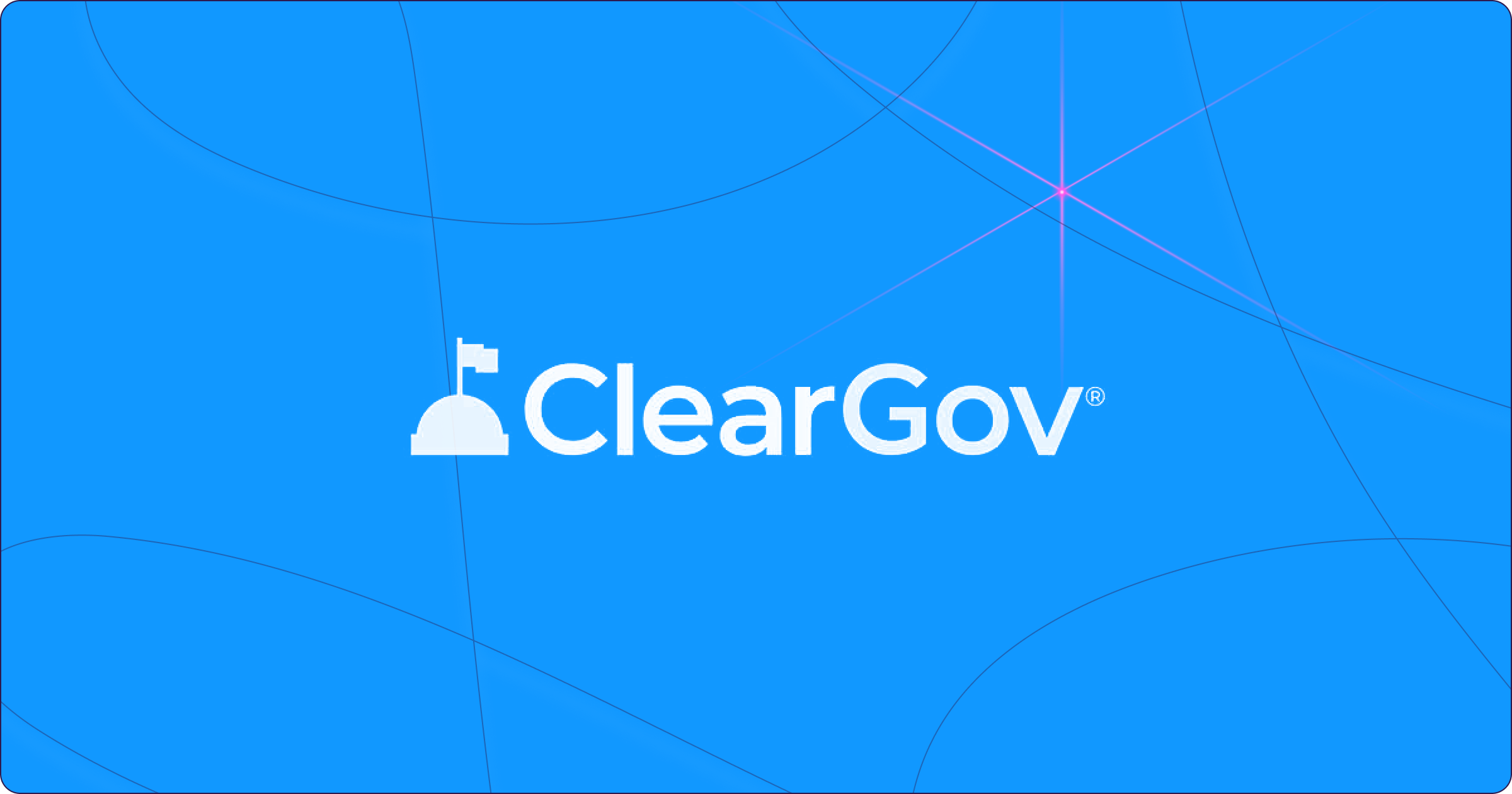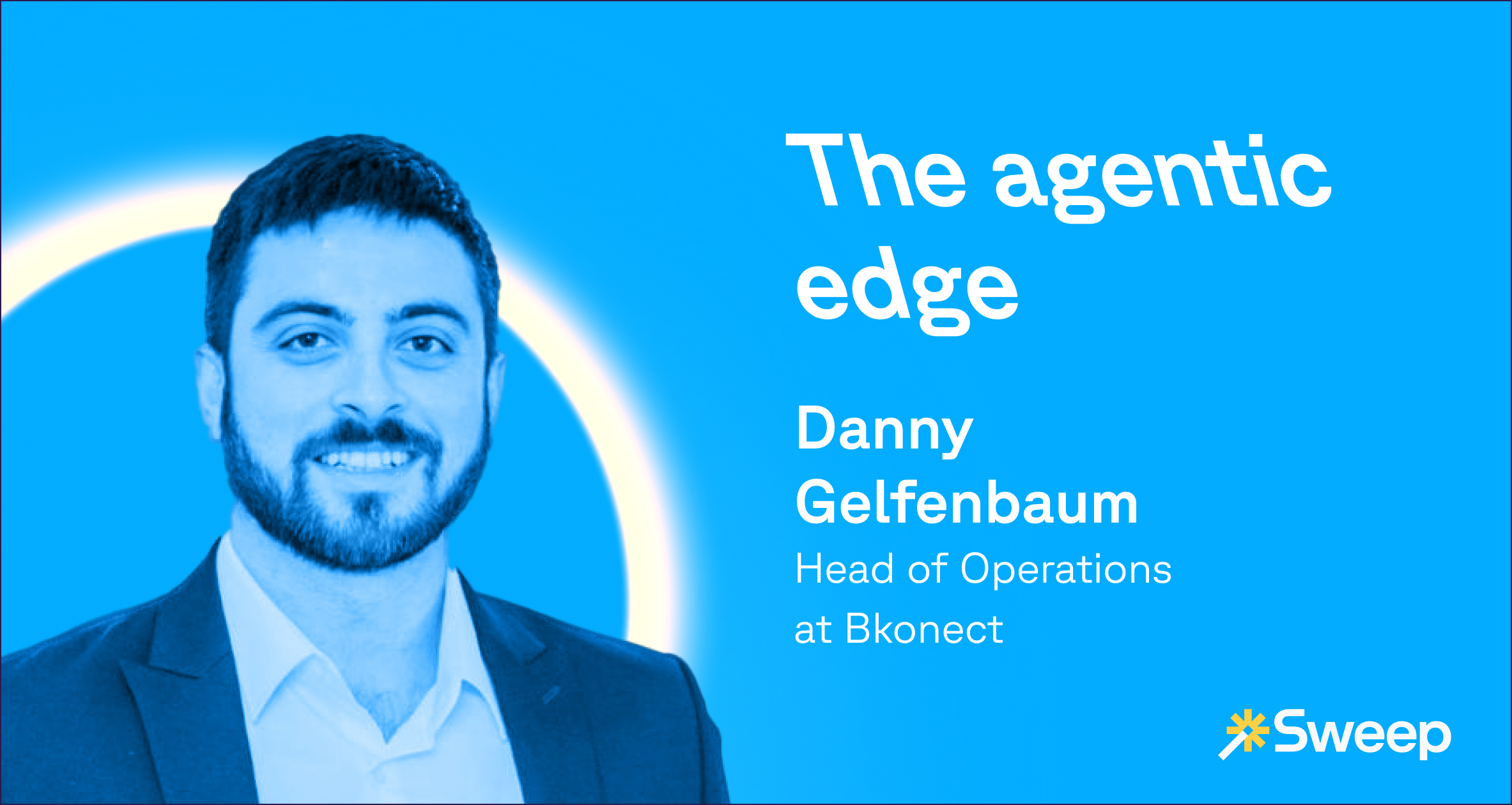
In the last year, the role of Revenue Operations has shifted from enabling execution to designing transformation. AI isn’t just another tool in the stack, it’s reshaping how go-to-market teams operate, collaborate, make decisions, and scale.
We asked four RevOps leaders how they are approaching AI: What does staying ahead look like in today’s landscape, and where does AI fit into that vision? The answers reveal a set of strategic approaches for operating smarter in the agentic era.
This post features Danny Gelfenbaum, Head of Operations at Bkonect, whose grounded, trust-centric approach to AI shows how even small steps can build momentum and how thoughtful implementation starts by listening before automating.
AI as a trust-building layer, not a transformation campaign
For Danny, staying ahead with AI doesn’t start with systems or strategy. It starts with people, specifically, with earning and maintaining customer trust.
“Staying ahead is not a technical thing – it's more of a confidence and trust feeling our customers receive. We do whatever we can to make them feel like ‘we got them’ and we are there for them in their journey and business goals.”
That philosophy extends to how he uses AI. Instead of pushing for broad automation, Danny looks for ways AI can quietly support clients and teams behind the scenes, without disrupting relationships.
“AI can fit into it by supporting that – tracking meetings and making sure all action items have been done, helping their implementations using AI, embedding AI into their processes if needed.”
In other words: AI isn’t the headline. It’s the support structure. It strengthens commitments, reinforces reliability, and makes the operational invisible work run smoother.
Start small, then earn the right to scale
While AI might promise sweeping change, Danny takes the opposite approach: find the smallest, clearest use case and prove it works.
“Yes – many are having a hard time seeing the use cases they can use AI to their benefit. To navigate it, using AI (or building it) for a limited use case can help them see the value.”
This is where adoption starts, not with executive buy-in, but with user belief. By demonstrating tangible improvements in one area, Danny creates space for broader experimentation. Momentum is earned, not mandated.
Context-first AI: Match tech maturity to process complexity
Not every process is ready for AI. And not every team needs AI right now. Danny is candid about the importance of picking your spots.
“Our business implements processes for others – so in many areas the autonomous agents technology isn't ripe enough yet.”
That doesn’t mean AI has no role to play. It just means knowing where the risks are low, and the rewards are obvious:
“It definitely can be used in other areas like marketing, sales, improving productivity of the implementation team etc.”
This practical triage, applying AI where the context is clear and the stakes are manageable, is what allows his team to move forward without overpromising. It’s AI with guardrails.
Use AI to free up focus, not replace it
Danny’s strongest belief may be his simplest: AI should give people time back. That’s where the real ROI lies.
“There are A LOT of ‘easy’ and basic tasks on our day to day. AI can take care of many of those, clearing your schedule to tackle the high value and complicated tasks.”
This is more than an efficiency play. It’s a reframing of operational priority. AI isn’t about cutting cost, it’s about removing friction, so humans can focus on what matters most.
Operator takeaway: Slow is smooth, smooth is fast
Danny Gelfenbaum’s approach to AI isn’t flashy. It’s not built on system-wide reinvention or bleeding-edge experiments. But it works. Because it’s built on something even more durable than innovation: trust.
By leading with care, starting small, and choosing use cases that build confidence, not chaos, Danny shows that the agentic edge isn’t always about scale. Sometimes, it’s about subtlety. About listening to your team. And about using AI not as a signal of transformation but as proof of reliability.
That’s how you earn the right to go further.

